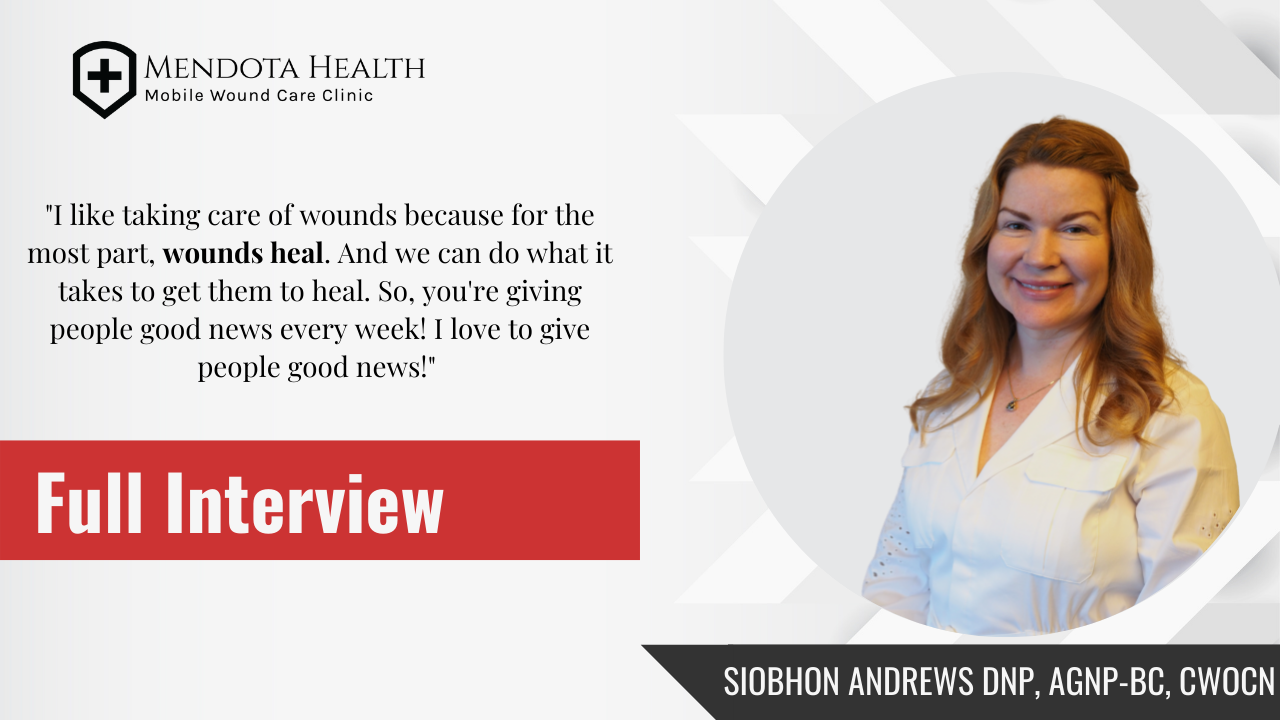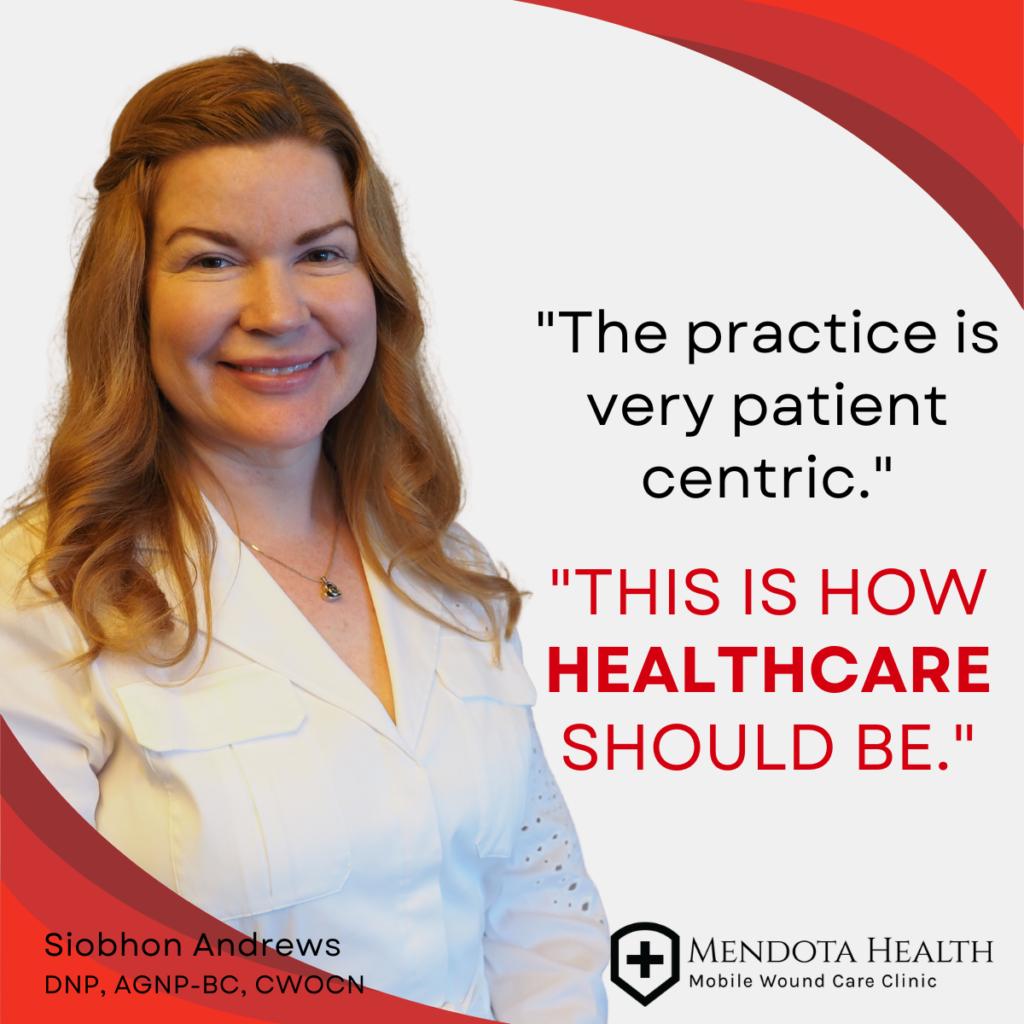
24 Jun Rewarding Work – Establishing Relationships
The following is an interview with Siobhon Andrews, DNP, AGNP-BC, CWOCN. Ms. Andrews is a nurse practitioner for Mendota Health, a national mobile wound care clinic.
Lee George:
Tell me about your work with Mendota Health, what do you like about it?
Siobhon Andrews:
One of the major benefits I found working for Mendota Health, and I’ve been employed as a nurse practitioner at other organizations, is it is more patient centric. The company is focused on what the patient’s goals are. We, as nurse practitioners here, are really fortunate to have the necessary amount
of appointment time to see these patients. When you work in other settings you don’t have the time that we have at Mendota. In other clinical settings I have worked in, you see a patient for 15 minutes and then you move on. Then you’re at your next patient for 15 minutes. You just have limited time.
We have about an hour at least to see our patients. This amount of time helps the nurse practitioner develop a really nice rapport with the patients. I’ve had patients tell me “you’re like a part of our family now” and I like that, I really do love that. I love that they feel safe when I’m there; they trust me because I had the time to establish rapport. You will never get that in any other clinical setting that I know of. So, we are really fortunate to have the amount of time we do with each patient.
Then to the wound aspect. I like taking care of wounds because for the most part, wounds heal. And we can do what it takes to get them to heal. So, you’re giving people good news every week! I love to give people good news! Every week you’re seeing progress. Sometimes you do have to do a couple different
things before it starts healing, but you’re always giving them some good news – “it’s getting better”, “we’re getting it figured out”, “we’re on the right path”, and they get excited about that. So that’s always nice to tell the patients the good news. And then the family, they love to hear their loved one is
getting better. So that’s another positive part of this job.
Lee:
I’m curious when you think back, before you got into healthcare, when you were just thinking about going to school, is the way you practice now with Mendota health the way you thought medicine ought to be practiced?
Siobhon:
For sure! It’s not providers, or you know physicians, it’s not their fault how the system is. This is how organizations are run, they only get that 10 to15 minutes with their patients!
I was working happily at a facility, and just my professional information was on LinkedIn, and a recruiter called and said “this is what we’re pitching, this is this job” and I’m like oh my gosh what a concept!
Then, before even interviewing for the position, I talked to Mike Nathan (CEO), and I said you know what, let me just interview. I’ve never done this before. I’ve had recruiters call me all the time and this is the first one in the 12 years that I said “let me just hear what they have to say”. And it was all true. The practice is very patient centric. They give you the time to really be with the patient, learn about them, build a relationship, and actually treat them! This is how healthcare should be. It’s sad that it’s not. In other organizations patients complain that their doctor only spent 15 minutes with me. But it’s the model. It’s not the provider’s fault you know. At Mendota Health I’ve never had a patient complain that I didn’t spend enough time with them. When we’re all done, the patient says that I’ve answered all their questions and we both feel good about the visit.

Lee:
Did you know what mobile wound care would be like?
Siobhon:
When I first graduated as an LPN back in 2006, I applied to do home care, but they wanted you to have experience. And then I got hired into the hospital setting and I just never left. But I always wanted to do home based care. I always had it in the back of my mind to do home care. But at the time of my life, the hospital was where I was meant to be. So I stayed. Then when I saw this pop up, I’m like “oh wow let me give it a try!”. And I don’t regret it! I don’t even think about my previous life anymore because I don’t regret it one bit.
Lee:
Could you tell me more about how the Mendota Health practice aligns with how you want to practice?
Siobhon:
You are able to establish relationships with your patients. Not only are you doing wound care, but you’re looking at other things like is their home safe? How are they living their day-to-day? Because there’s other ways that we can help. Maybe it is connecting them with a social worker, or the right nutrition, or physical therapy. Do they need these resources to come to their home? These are things that patients don’t know they have access to and we’re able to give them those resources so they can live the best life that they could possibly live!
Lee:
What does it feel like to actually get a wound to heal?
Siobhon:
The patient will say to me, and this is a pretty typical comment, “I’ve had this wound for a year. I don’t know what you’re gonna do that is going to work”. So I’m in there debriding it or laying a biologic you know, I’m getting those ankle brachial indexes, and make sure the blood flow to the legs is good. I’m
putting a compression on, or you know there is a pressure ulcer on the coccyx, and I’m doing advanced treatment. And then after a couple weeks or a couple of months, the wound is healing and they say “I never thought that wound was gonna heal!”. And you know you healed it for them and they think you’re a godsend.
Lee:
Do your patients talk about what they’re going to do now that their wound has healed?
Siobhon:
Yeah, they want to get back to showering. That’s a big one. They’ll say “I don’t have to worry about showering now” or “I can walk around without worrying about my wound draining on my carpet”. Or sometimes things like “I can put my tight jeans on again and not worry about the drainage”. Because many people are worried about the drainage or the odor.
Lee:
What is most rewarding about your job?
Siobhon:
The most rewarding thing is going into the home and establishing relationships. As I said, people saying that they feel like you’re a part of their family. I had one daughter, she gave me a hug, and she said “thank you so much for taking care of my mom like I take care of my mom”. That felt really nice. They
see how much I really care. It’s really rewarding when the family really thinks of you like that.
I would say 90% of my patients I’m working with, the family is involved. Whether it’s a spouse, whether it’s a daughter or granddaughter. They are there during the appointments or I might have phone calls with them or things like that. They usually are there the first appointment for sure. Then once they
watch you, watch me work, they say “she knows what she’s doing”. After that they don’t feel they need to be at every appointment. They might pop in once in a while.
I had a family member that didn’t have home care involved so she was helping doing the dressing. So, I taught her how to properly do the dressing. And she was like “I would never know how to do that if you weren’t here”.

